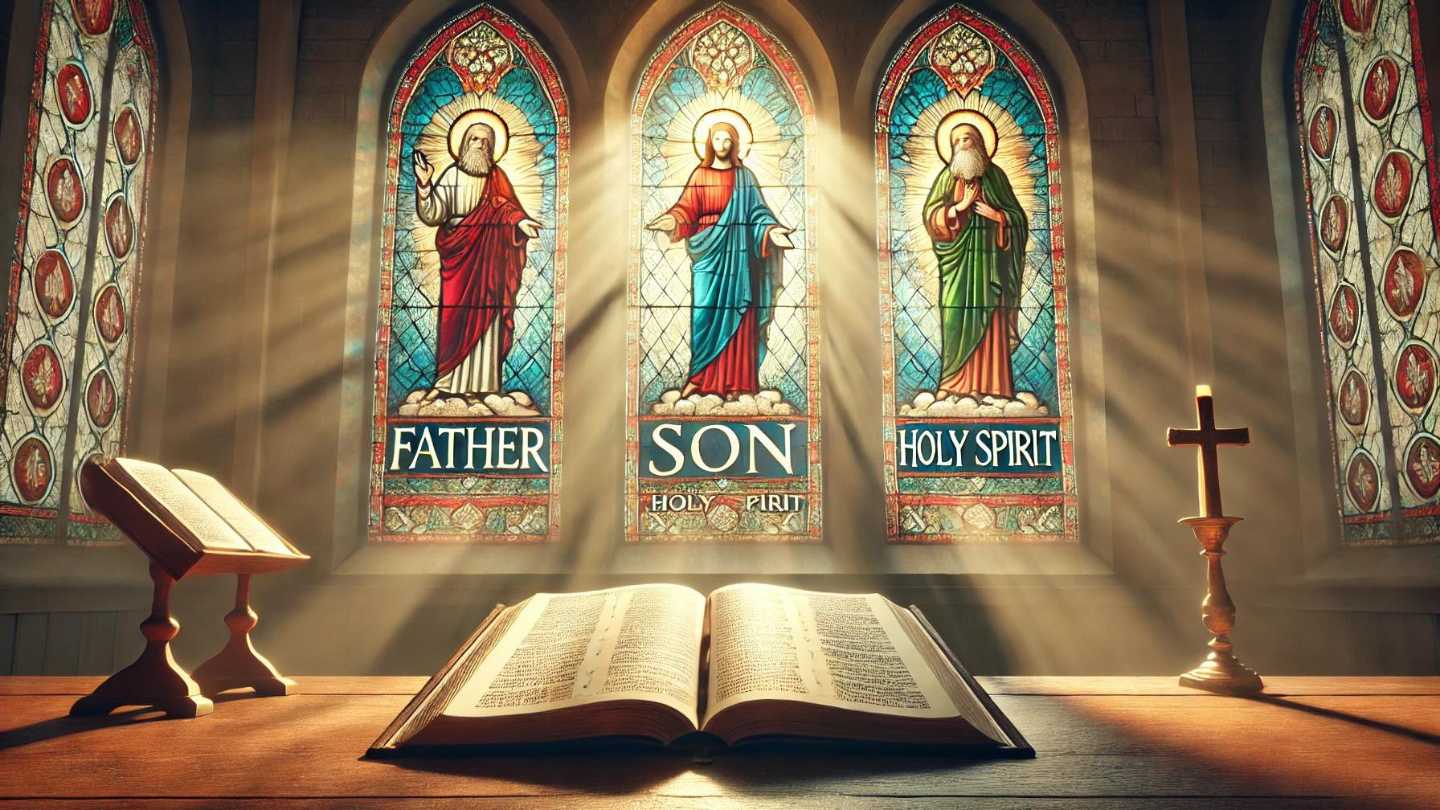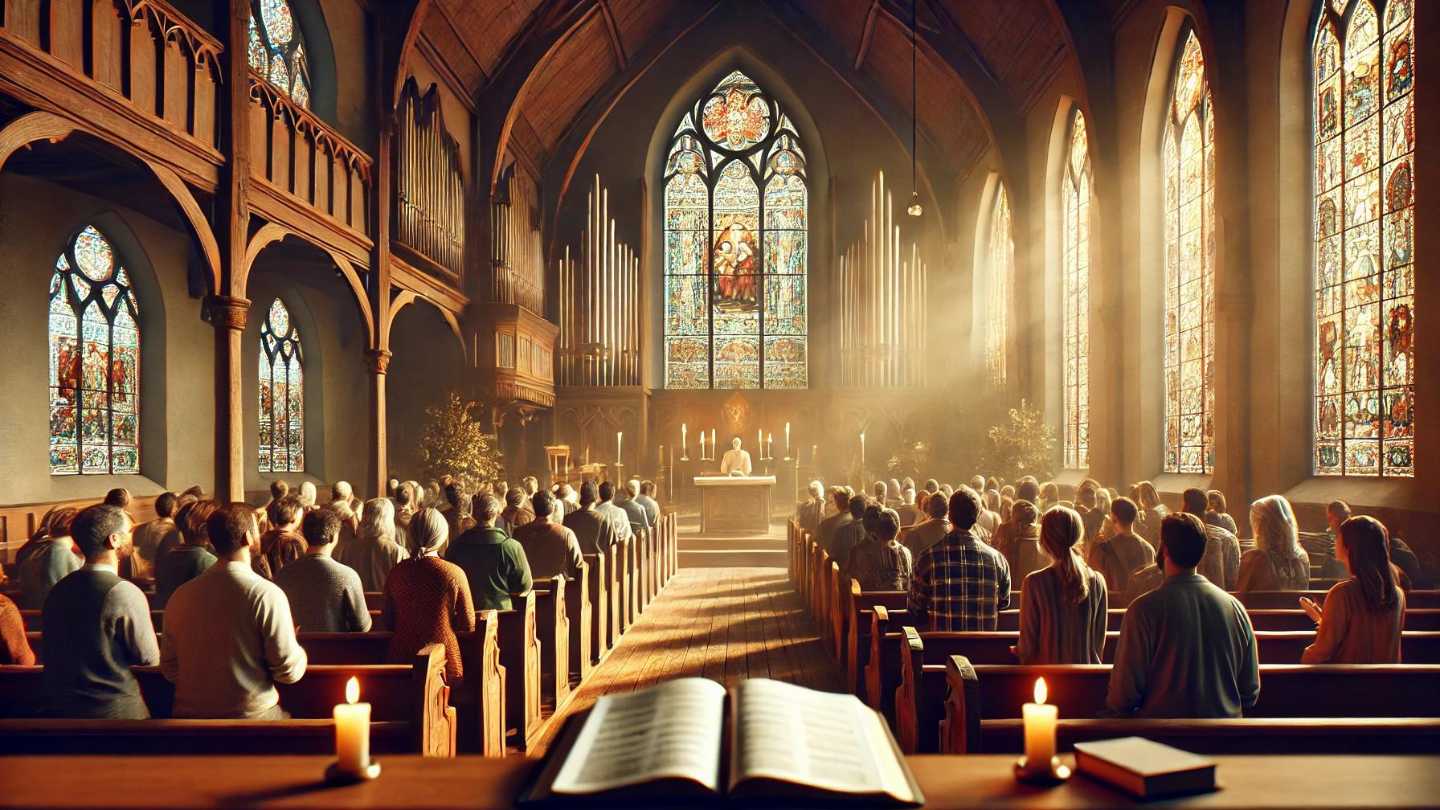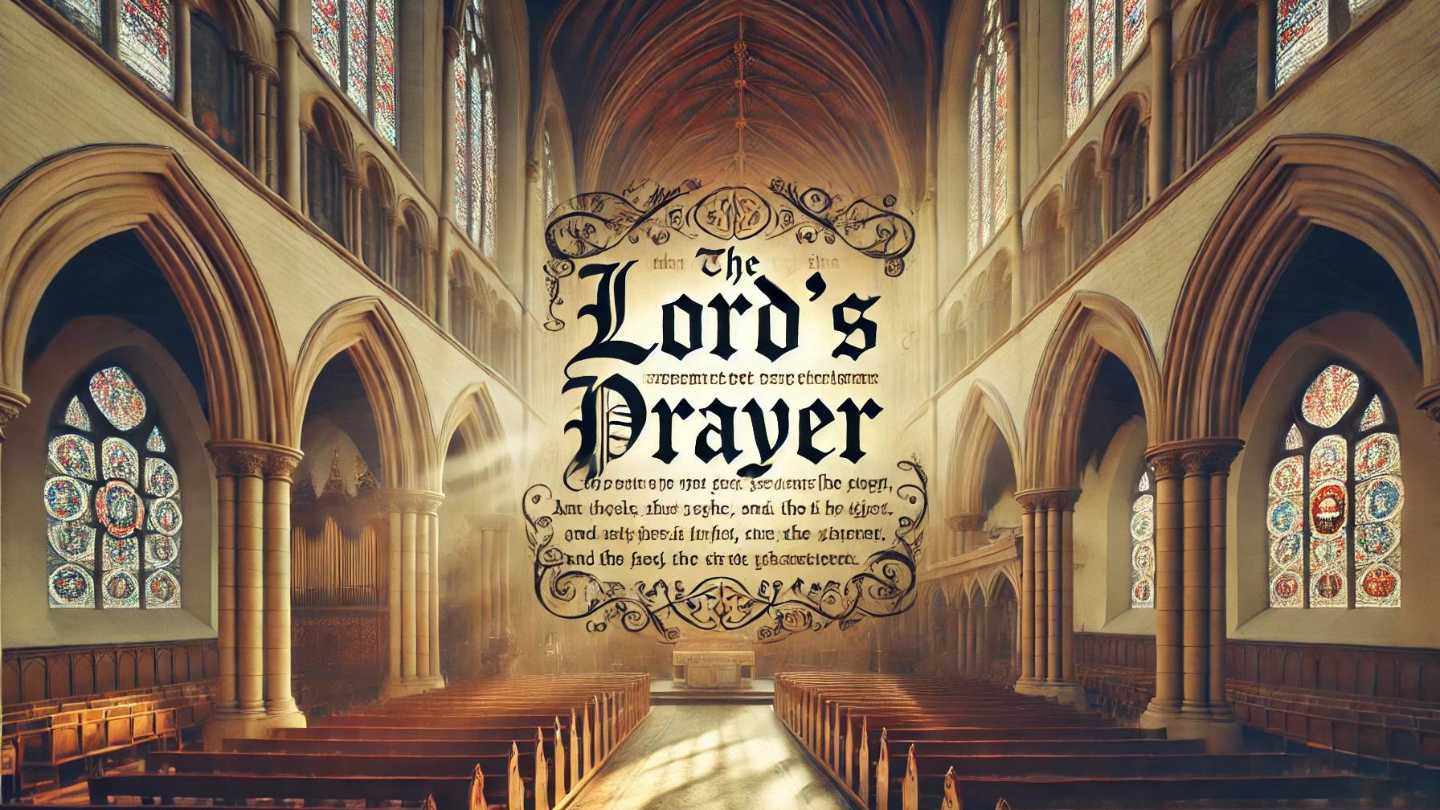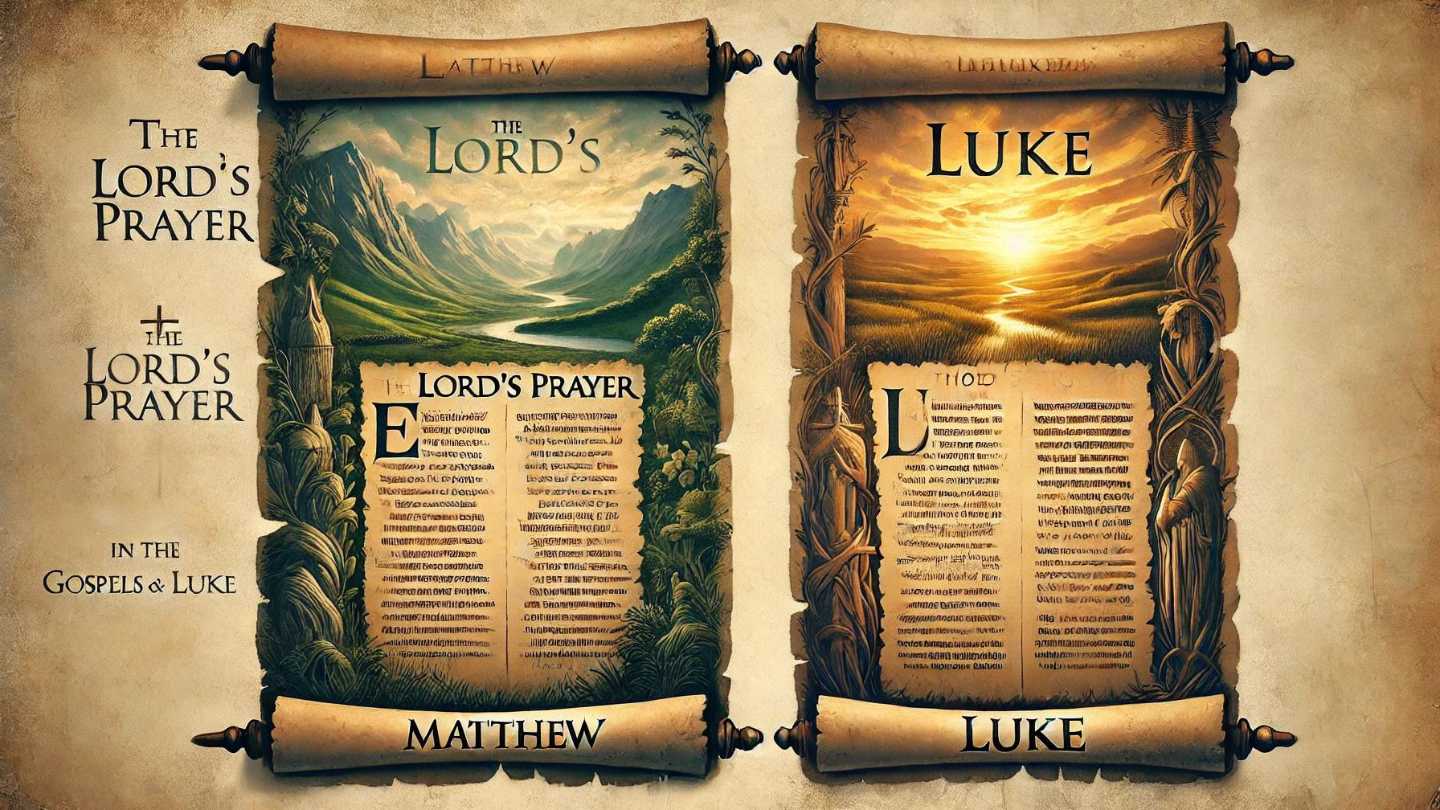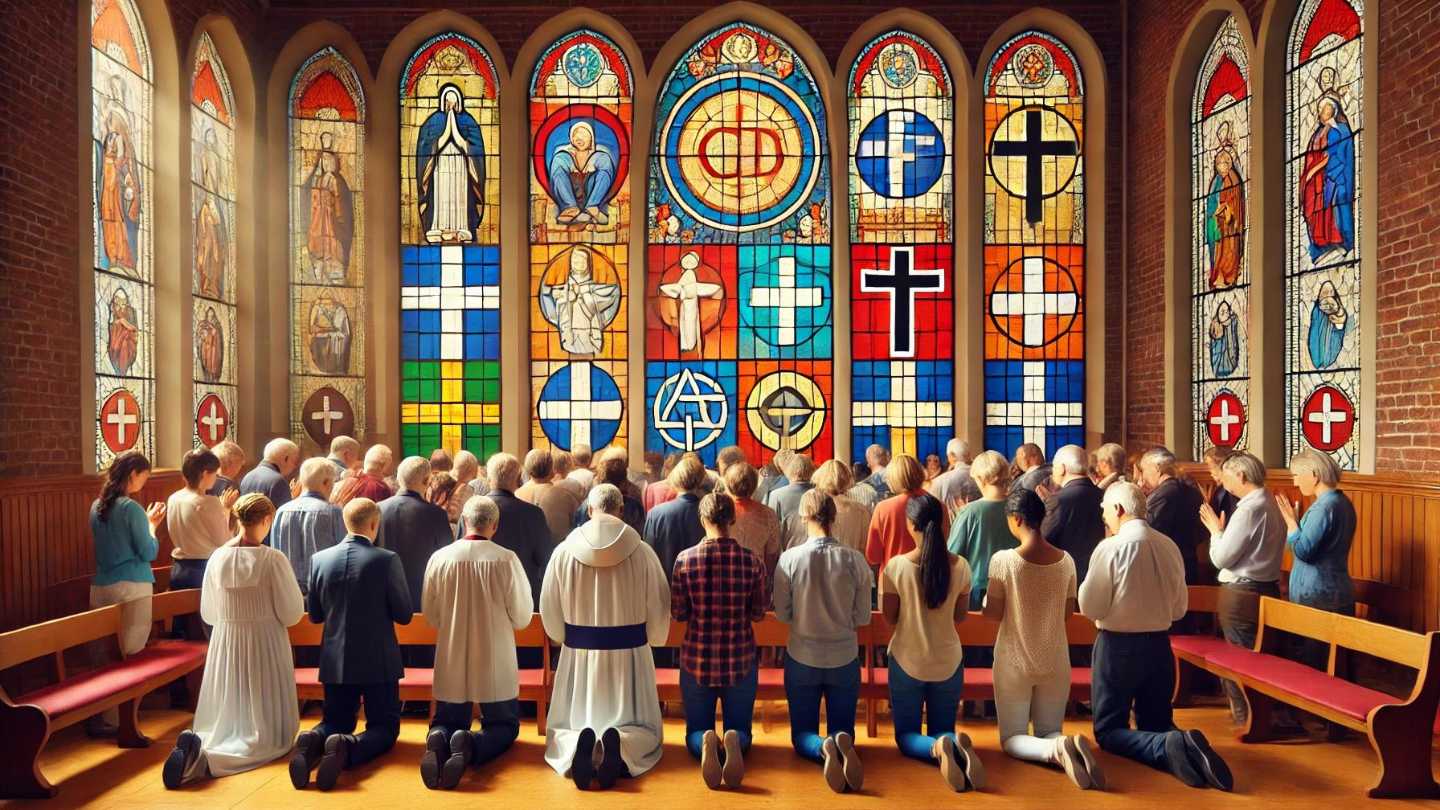The Lord’s Prayer is a prayer that is considered one of the best and most popular in Christianity. In the general model, as Jesus Christ taught His disciples in the Gospel of Matthew, during the Sermon on the Mount, it is taken up. This is said to be the summary of what Christian faith is all about and also to enlighten the followers of God on how they are to communicate with Him. Let us carefully examine the deeper meanings and biblical verses that shed light on each line in this prayer.
Our Father Who Art in Heaven
Biblical Reference: Matthew 6:9 – “Our Father in heaven, hallowed be Your name.
It starts by addressing God as “Our Father,” which expresses the close and personal relationship that believers have with Him. The address of ‘God’ as a loving and caring parent is brought out by the address, just like the relationship that exists between a father and his children. The phrase “who art in heaven” distinguishes God from the many gods that were believed to have inhabited the earth, showing God to be divine, sovereign, and above the limitations of the earth.
Hallowed Be Thy Name
Biblical Reference: Matthew 6:9 – “Our Father in heaven, hallowed be Your name.”
The word “hallow” means to regard and honor as holy, sacred, and revered. This clause altogether demands the lesson of regarding God’s name with reverence and acknowledges His holiness and to appropriately and respectfully use His name with grace. Indeed, this is God’s challenge that His children should live in a manner that gives glory and honor to God, including the way His name is regarded.
Thy Kingdom Come
Biblical Reference: Matthew 6:10 – “Your kingdom come. Your will be done on earth as it is in heaven.”
“Thy kingdom come” asks that God’s reign on earth be established as it is in heaven. It expresses the Christian hope that God’s divine plan be accomplished to perfection in His presence and to set up his kingdom of justice, peace, and holiness. The petition implies the demand of the faithful to be citizens of God’s kingdom and that their will be invited to do so through action and faith.
Thy Will Be Done on Earth as It Is in Heaven
Biblical Reference: Matthew 6:10 – “Your will be done on earth as it is in heaven.”
This line truly is the hope of the doxology for everything to be done, whether in the grand scheme or the minutest detail, according to what God wants. It is, in essence, a plea to have the will of God carried out in life. It is a sign of one being submissive to God’s divine calling, indicating His wisdom and purpose are way beyond the understanding of man. Believers are told to live in line with God’s will, for He shall provide guidance and be sovereign.
Give us this day our daily bread
Biblical Reference: Matthew 6:11 – “Give us today our daily bread.”
This petition acknowledges the human state of dependence upon their God for sustenance or provision each day. The term “daily bread” signifies physical nourishment and spiritual sustenance. It just means to have confidence that God will provide everything for us and ask for His help, towards that end, every day.
As We Forgive Those Who Trespass Against Us
Biblical Reference: Matthew 6:12 – “And forgive us our debts, as we also have forgiven our debtors.”
This line reinstates the fact that forgiveness is one of the core, strengthening elements of faith in Christianity. It underlines the concept of human sinfulness that is in need of divine mercy and forgiveness. Besides, it calls upon believers to extend the same forgiveness toward others, thus creating an atmosphere of reconciliation and love.
And lead us not into temptation, but deliver us from evil
Biblical Reference: Matthew 6:13 – “And lead us not into temptation, but deliver us from the evil one.”
It is, therefore, a plea that God would keep one from falling into temptation and yielding to sin. It acknowledges the evil with which the world is surrounded, and beseeches the divine strength to resist the same. Then, as believers, we are braced by the power of God to conquer and prevail in faithfulness.
For Thine Is the Kingdom, and the Power, and the Glory, Forever. Amen.
Biblical Reference: (Doxology usually added for liturgical use) –
“For thine is the kingdom, and the power, and the glory, forever. Amen.”
While this doxology is not found in the earliest and most accurate of the ancient manuscripts of the Gospel of Matthew, it still has been included in a traditional way in so much of Christian liturgies. Again, it is a statement of God’s eternal sovereignty, power, and glory – a final declaration of the believer’s acknowledgment of life under His eternal authority.
Deep Meanings and Reflections
The Lord’s Prayer is hardly just a set of words on a page; it is a deep expression of faith that covers many different dimensions of life as a Christian. Every line calls a person to think about their relationship with God and toward others, to reflect on and rely on God’s divine grace. Here are some key reflections of the deep meanings of this prayer:
- Relationship with God: Calling God “Our Father” suggests a very close and personal relationship with God, first of all locating Him as a loving parent who cares for His children.
- Reverence and Worship: “Hallowed be Thy name” requests that respect be accorded to God and that life be led in a manner that would be worthy of His name and His holiness.
- Hope to God’s Kingdom: “Thy kingdom come” shows how to earnestly desire the coming of God’s kingdom to realization on Earth, availing believers to work toward justice, peace, and righteousness.
- Acceptance of God’s Will: The inscription communicates a commitment to set one’s life in harmony with God’s intentions, trusting in His wisdom and guidance.
- Dependence on God: “Give us this day our daily bread” only means there is a need to fully depend on God for the provision of physical and spiritual needs.
- Forgiveness and Reconciliation: “Forgive us our trespasses” hence have to be observed; there is a need to ask for God’s forgiveness and conversely offer a spirit of forgiveness and reconciliation towards others.
- Protection from Evil: “Lead us not into temptation” acknowledges the weakness of humanity in the face of sin and the needed covering and invincibility of God to be able to stand before that which is evil.
- Affirmation of God’s Sovereignty: The concluding doxology reaffirms God’s eternal power and glory, inspiring confidence in His ultimate authority.
Final Thoughts
The Lord’s Prayer remains an ever-timely and deep reflection of faith for the Christian, summarizing general themes and issues that remain a guide in the avid spiritual pursuit. It is a prayer model, recommending that there should be relatedness with God, a commitment to His will and reverence, dependence, forgiveness, and hope in this life. As believers go through in the recitation of this prayer, one is invited to ponder deeply on its meaning as referred to and to live on these principles every new day in a better way, drawing closer to God in truth and devotion.
Related Articles
Author

Alona Smith is a devoted follower of Jesus Christ who believes that life’s true purpose is found in knowing Him and making Him known. She is passionate about sharing God’s Word with clarity and compassion, helping others see the beauty of the gospel of grace revealed through the Apostle Paul.
Grounded in Scripture and led by the Spirit, Alona seeks to live out her faith in practical ways—showing kindness, extending forgiveness, and walking in love. Whether serving in her local church, encouraging a friend in need, or simply living as a light in her community, she strives to reflect Christ in both word and deed.




